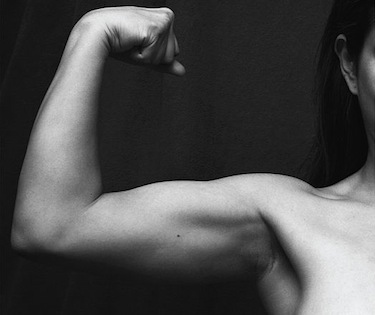I Feel Weak
And my perceived lack of social power affects assessment of my physical strength

Although the task would be large, I would like to change the world. I would provide free health care to all the world’s inhabitants, clean up the environment, and stop the ubiquitous promotions of junk food that bombard my children. And then there is the smaller problem of dog poop in the streets of my town. For some reason, many pet owners seem to regard sidewalks and playgrounds as open toilets; every day my children warn me to watch out for piles dotting our path.
Changing the world is challenging, and often I feel weak. Now it turns out that people who feel socially powerless also feel physically challenged: loaded-up boxes seem heavier to them than to those who feel personally powerful.
Eun Hee Lee, a Ph.D. student at the University of Cambridge who specializes in “embodiment of social power,” recently conducted a study, published in the Journal of Experimental Psychology, in which she asked different groups of people to estimate the weight of boxes loaded with books. In her first experiment, she asked a group of 144 subjects, recruited from the streets of Cambridge, to fill in a questionnaire analyzing an individual’s “personal sense of power.” (Sample item: “In my relationships with others, I can get people to listen to what I say.”) She then asked participants to guess the weight of two boxes of books, weighing either 2 pounds or 8.2 pounds. Those who felt powerless consistently overestimated the weight of the boxes.
In a second experiment, she asked 41 participants to sit in either (1) an expansive, dominant posture or (2) in a constricted pose, “placing hands under their thighs, with shoulders dropped and legs placed together.” Again, those in the submissive condition imagined three book-loaded boxes of differing weights to be heavier than they actually were. In a final experiment, she asked 68 volunteers to describe an incident in their past in which they had had power over another or an incident in which someone had power over them. Again, those recalling the powerless condition overestimated the weight of proffered boxes.
Why should this be? As Lee and her supervisor Simone Schnall explain in their paper, socially powerful people often have access to “plentiful rewards,” such as money, physical comforts, and public recognition, whereas the powerless often face uncertainty. Recent research suggests that social power enables the heart to work more efficiently, so that, as Lee wrote to me in an email, “Powerful people can more efficiently mobilize action-relevant bodily resources.” But a tendency to exaggerate the challenge of physical tasks can be damaging, Lee says, since the powerless “might be prevented from putting 100 percent effort into the tasks.”
One lesson I learned from this study: I should never assume that my voice will not be heard. I wrote to the mayor of my town and asked him what he intended to do about the street-strewn excreta. He wrote back the very next day and said, “We will try emphasizing this issue at the city’s schools, and consider raising the fees for this sort of behavior. I believe that the fruits of this action will be seen at the next few years.” He added a note: “Thank you for your civil awareness. It’s always nice to hear from citizens who care.”

